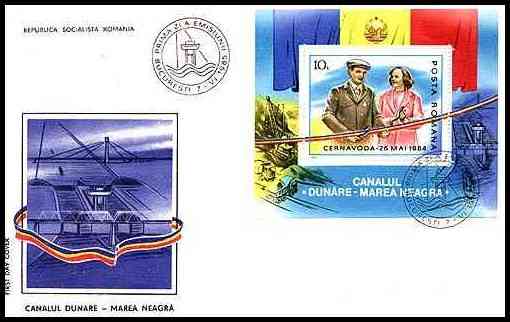

Usually this sort of title leads to an article about the horrors of Nazism.
This page is a bit different. It deals with horrors which the mainstream of
modern historians and philosophers try to evade or forget - the crimes of
Communism in the 20th century. The reason for this evasion is simple to
understand. Most of the intellectuals still believe that the basic ideas
behind Communism are generous and that only the implementation failed.
Different reasons are given: bad places, bad people, bad moments.
The purpose of this
page is to illustrate, using philatelic
materials, how Communism was chosen (or imposed) and what consequences it
had for people who were forced to live under it for long decades, sometimes
their entire lives. The horrible time of Nazism had a duration of about 12
years and finished over 50 years ago, but it is still fully in the center of
attention. Unfortunately we hear much less about the fate of over a billion
people who today live under communism. This short historical
presentation, based on philatelic material, is therefore more relevant then
ever.
ROMANIA: THE DANUBE - BLACK SEA CANAL
The Souvenir Sheet presented below (year 1985, Scott 3270, Michel 216) still evokes bad souvenirs for many Romanians. It shows the opening ceremony in Cernavoda, where the former President and the General Secretary of the Romanian Communist Party, Nicolae Ceausescu and his wife Elena (both executed five year later) inaugurated the new canal.
 |
 |
The first work on this canal started at the beginning of the 1950's. The
freshly installed Communist regime decided to eliminate many people it
declared as enemies and to silence the rest of the population at the same
time. The Canal was an immense concentration camp, with many thousands of
prisoners. The majority were not allowed to have overcoats during the very
cold local winters nor to receive medical aid. A lot of prisoners died of
cold, inhuman working and living conditions, and lack of medical attention.
In 1951, in a set dedicated to the 1951-1955 Five Year
Plan (a plan that failed miserably, like all others that followed), the 6
Lei value, shown above in its overprinted version of 1952, was dedicated to the Danube - Black Sea Canal (Scott 799-818,
Michel 1276-1285). On the stamp one can read: "In the year 1955 the
Danube - Black Sea canal will be put into operation".
Work was
stopped in 1953 and, after a parody of a trial, two state-employed engineers,
who were not camp internees, were shot for allegedly sabotaging the project. Interestingly
enough, for a long period (approximately 1955 - 1990) this stamp was banned
from the Romanian catalogues and from the state philatelic commerce. It was
a sore reminder of a never finished canal - a project that those in power
felt was best forgotten. Possibly there were too many bad memories even for
these former criminals elevated to seats of power.
Thirty years later the Romanian President Ceausescu, a
loyal follower of these criminals, restarted this megalomaniac project and,
spending billions of dollars that his starving country badly needed, succeeded
in finishing the works. At the time the project was restarted, water
transportation had already started to be replaced by road transport, a development that only accelerated later.
Please notice on the material presented above the
evolution of the name of the country from Republica Populara Romana toward
the Republica Socialista Romana. Neither translation nor further comments are
necessary.
|
|